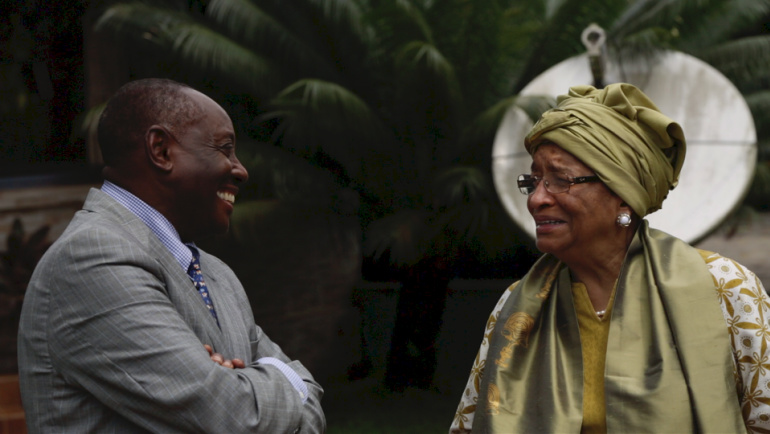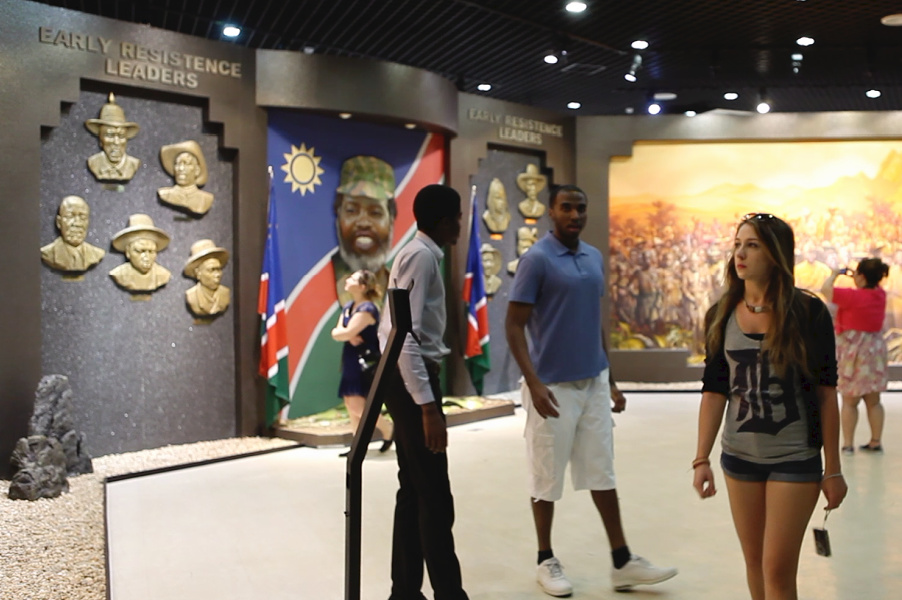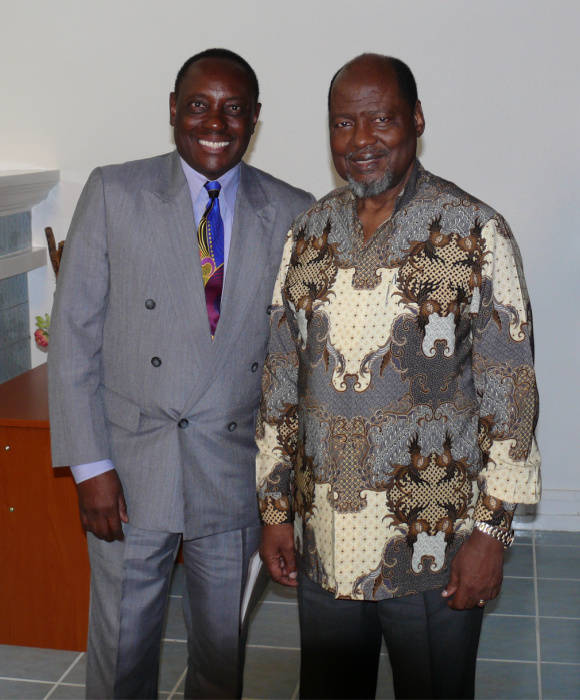
After more than a decade of interviews and research, the powerful documentary film “African Democracy: Hopes and Challenges” — an expansive examination of the foundations and development of democratic rule on the world’s second-largest continent — recently made its primetime debut.
The culmination of an 11-year journey across Africa by former Wayne State University president Irvin D. Reid, Ph.D. and various teams of WSU student researchers, the documentary revolves around extensive conversations with a nearly a dozen current and former African leaders about the struggle to establish democratic norms in areas such as human rights, economic sustainability and environment policy.
In addition, the film also scrutinizes the issue of democracy through the eyes of many of the students who worked with Reid on the project, forcing them to confront stereotypical American views and expectations of African governments.

The film, which is expected to be nominated for a plethora of awards, including the Emmy, premiered Jan. 25 on Comcast 900 in Southeast Michigan. It also airs Jan. 28 at 9 a.m., Jan. 29 at 5:30 p.m. and is available with Comcast’s On Demand. The 90-minute documentary will be made available to everyone after Feb. 1 and can be streamed on the Irvin D. Reid Honors College website at https://honors.wayne.edu/adp.
Edited by Emmy-award winning director Darryl Shreve, who works for Wayne State's University Television, the documentary springs from the overarching “African Democracy Project,” a continent-wide research endeavors that Reid launched in 2008, following an 11-year tenure as president of WSU. The project was housed in the Irvin D. Reid Honors College but open to all students.
The idea for the project — initially funded by the Eugene Applebaum Chair in Community Engagement with the support of Applebaum Family Philanthropy — had been percolating even longer, though, sparked after a conversation Reid had with President Samuel Nujoma of Namibia and reignited following a conversation years later with Joachim Chissano, the second president of the Republic of Mozambique.

“At a time when the media’s stories about Africa often center around war or disease, I wanted our students to be able to see for themselves the amazing changes taking place on the continent and to be able to deconstruct the stereotypes, myths and falsehoods we’re fed about Africa every day,” said Reid. “And I felt it would be powerful to capture their experiences on film right alongside these singular interviews with some of the very architects of African democracy.”
Dean John Corvino, who heads the Honors College, recently interviewed Reid for a recent virtual WSU "Knowledge on Tap" event and remarked on the lessons the documentary holds not only for those interested in African democracy but for many watching U.S. politics as well.
"This documentary is both moving and timely," said Dean Corvino. "At a time when our own democracy feels fragile, it invites us to think more deeply about democracy's prospects and challenges through the experience of African nations."
In October 2009, Reid returned to Mozambique, his first group of students in tow. Over the next 10 years, Reid would bring new groups of students to meet government officials, ministers and educators in several African nations, including Botswana, Ghana, Liberia and Tanzania.
Along the way, Reid and students gathered interview footage with a veritable Who’s Who of African democratic leadership. Among those included in the documentary are Jerry Rawlings and John Mahamma, former presidents of Ghana; Nobel Prize-recipient Ellen Sirleaf, formerly the president of Liberia following its civil war; Mozambique civil war leader Afonso Dhlakama; Nora Schimming-Chase, former ambassador to Germany from Namibia; and Liberian activist Leymah Gbowee, a Nobel laureate for leadership for her work to seek peaceful end to civil war.
